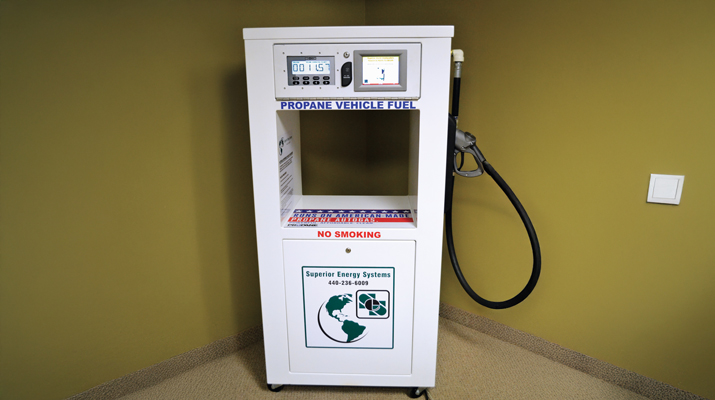Why is LIHEAP being debated?
For months, the Energy Information Administration has warned of this winter’s rise in home heating costs for consumers. For weeks, Congressional hearings focused on issues related to energy price, supply and infrastructure.
 Lisa Bontempo |
Consumers are now facing their first fuel bills reflecting these higher costs and marketers are feeling the pinch in their bottom lines. So why is the bill that funds the Low Income Home Heating Program (LIHEAP) causing such a debate?
Congress funded the program at $1.9 billion dollars for 2005 and added an additional $300 million in emergency appropriations. This year, members of Congress and others from fuel providers to anti-poverty advocates have called for an increase in energy assistance funding, to $5.1 billion for 2006. In a letter to Senate Appropriations Chairman Thad Cochran (R-MS), National Propane Gas Association President Rick Roldan called LIHEAP “a program that works,” and one that is “grossly under-funded.”
 Briefly Speaking |
While LIHEAP has strong support, significant funding and political cross pressures arise from the fact that it’s a small part of one of the largest and most controversial appropriations bills, the Labor, Health and Human Services, and Education bill. Head Start, Welfare and public health emergency preparedness are also funded by this bill, and all compete for funding.
To complicate matters, the tax writing committees are trying to extend tax cuts (thus increasing the deficit) and the budget committees are trying to cut spending and reduce the budget and hence the deficit. Confused yet?
Senate Finance Committee Chairman Charles E. Grassley (R-IA) originally proposed extending lower taxes on dividends and capital gains until 2010 and limiting the alternative minimum tax as part of an $81.4 billion tax cut measure. The measure also included $7.6 billion in tax breaks to help hurricane survivors. While the business community support his efforts, Democrats and moderate Republicans oppose it. Many do not want to cut taxes in light of U.S. military operations in Iraq and Afghanistan and continued calls for hurricane relief in the Gulf Coast.
Sen. Olympia Snow (R-ME), like many others, is under pressure from her party to meet mandatory spending reductions, but at the same time, is a strong advocate of LIHEAP and other social spending programs.
The deficit reduction package adds to the political dynamic. Moderate Republicans and Democrats pressured House Republican leaders to remove provisions related to oil drilling in the Arctic National Wildlife Refuge and offshore drilling. These domestic energy production measures remain in the Senate version of the bill.
The fissure between those who favor tax cuts and those who put a premium on balancing the federal budget leave programs that many support – like LIHEAP – caught in the middle.
















